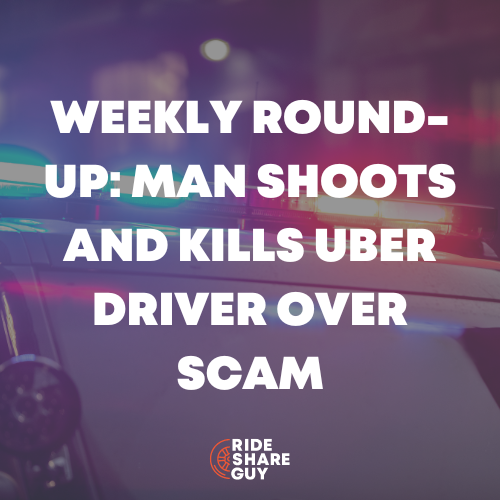Happy holidays from the RSG team to you! We hope you’re having a good holiday season and are staying safe on the road! In this week’s roundup, Uber co-founder Travis Kalanick officially cuts ties with Uber in the new year. What does this mean for Uber, if anything? Senior RSG contributor John Ince covers this news and more below.

Uber knows more about its rape problem than anyone else. What should it do with that data? [Washington Post]
Sum and Substance: Uber knows more about its rape problem than anyone else. What should it do with that data?
Critics say Uber’s survivor-centric policies shielded it from responsibility when it came to rape and sexual assault on the platform.
For the first time in its history, Uber this month reported data on the dangers of sexual assault on its app. Now it’s facing calls to action, requiring the ride-hailing giant to make tough decisions on how to balance victims’ wishes with demands to report dangerous riders and passengers to local regulators or law enforcement — or both.
The dilemma: Does Uber have an obligation to tell authorities what it knows about potentially dangerous users of its app — or do more to ensure victims come forward?…
Uber spokeswoman Brooke Anderson said the company is working on developing best practices for victims who do want to report, and it’s developing a policy that would enable two-way information sharing on deactivated drivers with rival Lyft and others. Uber currently directs victims to RAINN, the Rape, Abuse & Incest National Network, for support services and for assistance going to police, should they choose that route.
The report, an 84-page summation of Uber’s safety problems such as sexual assault, violent crime and road deaths, laid bare the platform’s problems in the wake of its meteoric growth over the past decade. In part because Uber and Lyft have so quickly changed the transportation landscape — pushing aside taxis and pulling riders from traditional transit options — government agencies were caught flat-footed in their efforts to regulate them. Uber alone shuttles passengers on more than a billion U.S. rides per year, using public roads and infrastructure to conduct its business….
My Take: What then is the responsibility of Uber on this one? Seems to me that Uber has to look at this on a case by case basis. Some cases cry out for action by the law enforcement agencies. Others are more complicated – victims may not want to report for a variety of reasons. This is a difficult conundrum, stay tuned for more.
In win for Uber, Lyft, judge strikes down New York City’s cruising cap [Reuters]
Sum and Substance: A New York state judge on Monday ruled in favor of Uber Technologies Inc (UBER.N) and Lyft Inc (LYFT.O) in a lawsuit against New York City, striking down a new rule limiting how much time drivers for ride-hailing services can spend cruising streets in busy areas of Manhattan without passengers.
Judge Lyle Frank of the Supreme Court of State of New York in his decision called the city’s cruising cap “arbitrary and capricious.” New York City passed the rule in August with the aim of reducing traffic congestion in Manhattan, where ride-share vehicles make up close to a third of peak traffic.
The city’s mayor’s office said it was reviewing its legal options, including an appeal.
My Take: I don’t know how to come out on this one. As a driver, I would want flexibility, but something has to be done to reduce congestion. I guess we’ll have to go with the courts on this one.
Uber and Lyft drivers could become employees with this law: 10 things to know [CNET]
Sum and Substance: Come January, a landmark law is set to go into effect and possibly turn ride-hail drivers into employees. This could upend the gig economy as we know it. …
Gig worker rights were front and center in 2019. News headlines showed hundreds of Uber and Lyft drivers protesting against the companies. California became the first state to pass a landmark law aimed at protecting such workers. And more states appear set to follow suit. No surprise, the companies vowed to hold their ground.
Independent contract work has been around for decades, but Silicon Valley and the app-based economy have created hundreds of thousands of new jobs that fit into this category — from Uber and Lyft drivers to DoorDash and Postmates delivery people to TaskRabbit do-anything helpers. When first introduced about a decade ago, these jobs were seen as a way to help workers make ends meet. Gradually, they morphed into some people’s sole income.
Now, as these workers say they have to work longer hours for lower pay with no benefits, the gig economy is facing a reckoning.
California’s new AB 5 law could require these companies to reclassify their workers as employees. Other states, like Washington, Oregon, New York and New Jersey, are looking at similar laws.
Gig workers typically don’t get benefits like health insurance, paid sick days and overtime. And Uber and Lyft drivers have to pay for their own cars, gas, vehicle maintenance and insurance. Many drivers say this system has led to exploitation.
The problem for the companies is that managing workforces of this size can be unwieldy and expensive. Both Uber and Lyft are struggling to become profitable, and labor costs could add millions of dollars to their bottom lines. A Barclays analysis from June said that reclassifying California drivers as employees could cost Uber $500 million per year and Lyft $290 million per year.
This could be why the two companies have fought AB 5 throughout the entire process. Before the law passed, in a rare showing of cooperation, the CEOs of Uber and Lyft wrote a joint op-ed in the San Francisco Chronicle, saying drivers should remain independent contractors. The companies also circulated petitions to drivers and passengers warning of fewer cars on the road and higher prices if they had to reclassify their workforce as employees.
Once AB 5 was signed by California’s governor in September, Uber and Lyft spent $30 million each to sponsor a ballot initiative for November 2020 that could exempt them from the law. It’s unclear if the initiative will make it onto the ballot or if it will pass. In the meantime, AB 5 is set to go into effect come January — and both companies told CNET they have no plans to reclassify their drivers. Here’s 10 things you need to know about AB 5, the ballot initiative and worker classification: …
But nothing in AB 5 says drivers can’t maintain flexible schedules. In fact, the bill states: “Nothing in this act is intended to diminish the flexibility of employees to work part-time or intermittent schedules.”
“It’s a false narrative that the flexibility of gig work and worker protections can’t coexist.”
My Take: Well, the moment is upon us in California – the bill has passed and will take effect on January 1, 2020. What will change? Turns out not that much. Uber/Lyft won’t recognize the law, and they have their own ballot initiative planned. So much for the political process.
Uber co-founder Travis Kalanick cuts his last ties with the ride-hailing giant [Washington Post]
Sum and Substance: Uber co-founder Travis Kalanick cuts his last ties with the ride-hailing giant He is stepping down from the board and is expected to sell his entire stake in the company.
Uber said co-founder Travis Kalanick will resign from the company’s board of directors at the end of this year, marking a final exit for the tech entrepreneur who helped launch the ride-booking start-up 10 years ago and grew it into a controversial Silicon Valley giant.
On Tuesday, Uber said Kalanick would leave the board “to focus on his new business and philanthropic endeavors,” though it did not provide specifics. Kalanick resigned as the company’s chief executive in 2017 after several chaotic months that ended in a shareholder revolt. That resignation also came in the wake of scandals tied to Uber’s workplace culture, including a leaked video of Kalanick cursing at a driver…
My Take: We knew this was coming… and the timing seems right. End of the decade and it’s time to move on. He accomplished a lot, both positive and negative. Best wishes in your new venture, bro.
Readers, what do you think of this week’s round up? Do you think it’s a normal departure for Kalanick, or do you think this signals something more ominous about Uber’s future?
-John @ RSG




